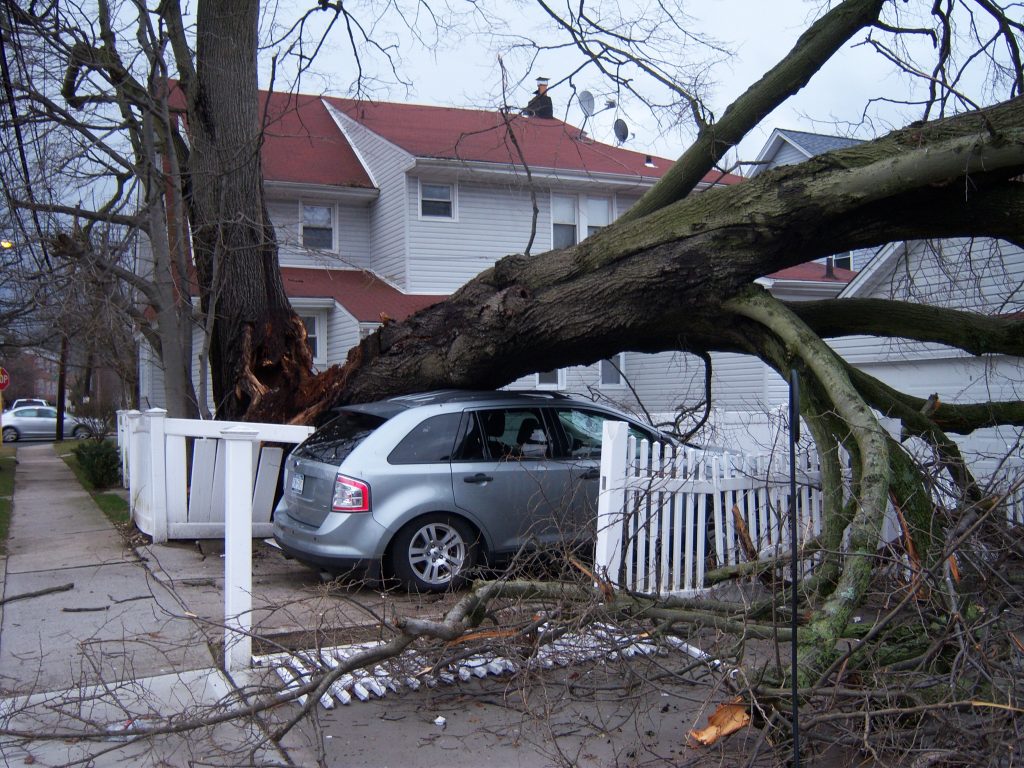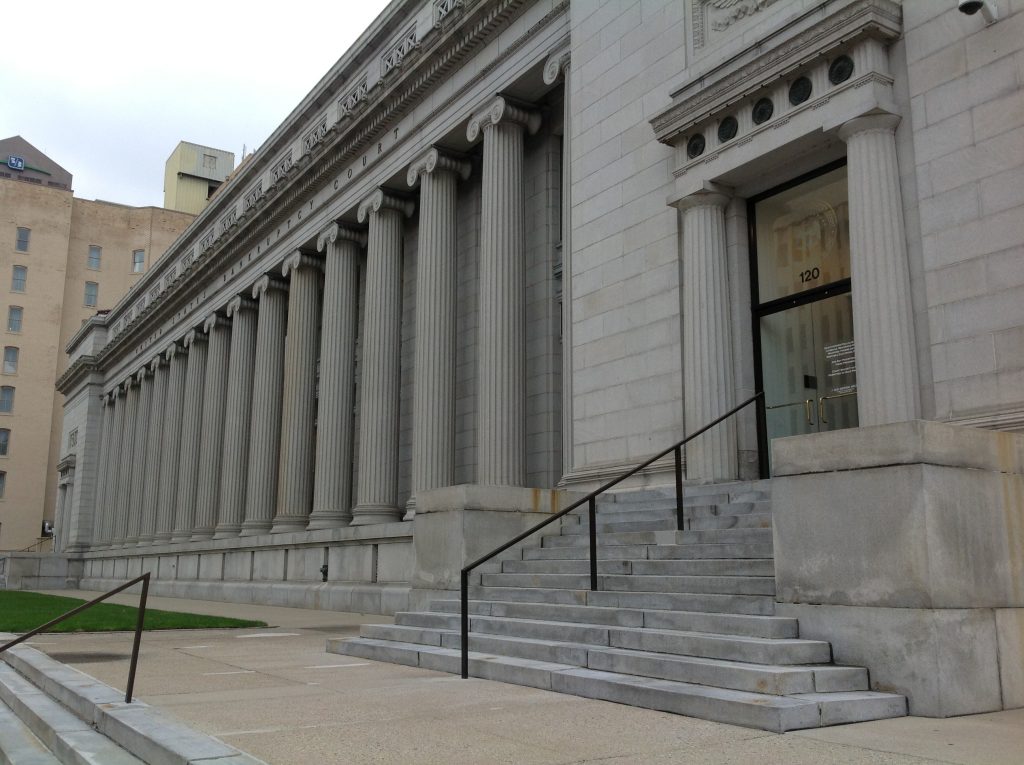 Borrowing a car from family or friends is a common occurrence. While you might think your car insurance protects you in the unfortunate event you are involved in a car accident while driving the borrowed car, it is essential to be aware of exclusions that might apply to your insurance coverage. This case involves a policy exclusion that applied to property damage caused to the borrowed car.
Borrowing a car from family or friends is a common occurrence. While you might think your car insurance protects you in the unfortunate event you are involved in a car accident while driving the borrowed car, it is essential to be aware of exclusions that might apply to your insurance coverage. This case involves a policy exclusion that applied to property damage caused to the borrowed car.
Asha Sade Johnson had a car insurance policy from Geico. Johnson was involved in a car accident while driving a Jeep owned by her mother, Ruby Lee Lewis. The accident caused significant damage to her mother’s car. Lewis did not have her own collision or comprehensive coverage insurance for her car. Johnson owned a different car insured by Geico.
Lewis filed a lawsuit against Geico seeking compensation under Johnson’s insurance policy for the damages caused to her vehicle from the accident while Johnson was driving her car. Geico filed a summary judgment motion, arguing Johnson’s policy did not include coverage for damage to property such as Lewis’ car. The trial court denied Geico’s summary judgment motion.
 Louisiana Personal Injury Lawyer Blog
Louisiana Personal Injury Lawyer Blog


 If your doctor makes an obvious mistake in a surgery, you might think you can succeed in a medical malpractice lawsuit against the doctor. However, Louisiana law does not require a doctor to act perfectly. Therefore, if you are considering bringing a medical malpractice lawsuit against a medical professional, you must understand the applicable standard of care you are required to prove they did not satisfy. This case illustrates how the standard of care a doctor is required to follow depends on the existing circumstances.
If your doctor makes an obvious mistake in a surgery, you might think you can succeed in a medical malpractice lawsuit against the doctor. However, Louisiana law does not require a doctor to act perfectly. Therefore, if you are considering bringing a medical malpractice lawsuit against a medical professional, you must understand the applicable standard of care you are required to prove they did not satisfy. This case illustrates how the standard of care a doctor is required to follow depends on the existing circumstances. Receiving compensation from the at-fault driver’s insurance policy after a car accident can bring relief. However, it is essential to be aware of the potential complications if the awarded amount exceeds the other driver’s insurance policy limits. This case serves as an example of what can happen in such situations and highlights the importance of understanding the legal implications.
Receiving compensation from the at-fault driver’s insurance policy after a car accident can bring relief. However, it is essential to be aware of the potential complications if the awarded amount exceeds the other driver’s insurance policy limits. This case serves as an example of what can happen in such situations and highlights the importance of understanding the legal implications. Entering into a contract entails an expectation that both parties will fulfill their respective obligations. However, what transpires when one party complies while the other fails to uphold its promises? This case delves into the repercussions of such a scenario, shedding light on the importance of seeking legal remedies to enforce contractual agreements.
Entering into a contract entails an expectation that both parties will fulfill their respective obligations. However, what transpires when one party complies while the other fails to uphold its promises? This case delves into the repercussions of such a scenario, shedding light on the importance of seeking legal remedies to enforce contractual agreements. If you sign a settlement agreement, you might feel relieved that you no longer have to go to trial. After all, settlements are generally thought to save you the time and expense of going to trial. But what happens if the other side fails to pay you the settlement funds by the terms of the settlement agreement?
If you sign a settlement agreement, you might feel relieved that you no longer have to go to trial. After all, settlements are generally thought to save you the time and expense of going to trial. But what happens if the other side fails to pay you the settlement funds by the terms of the settlement agreement? You might be eligible for workers’ compensation if you are injured on the job. However, you must be honest in your communications with your employer and medical providers because, under Louisiana law, you forfeit your rights to any such benefits if you make misrepresentations or false statements concerning your workers’ compensation scheme. What happens if these misrepresentations appear to result from memory impairments related to your on-the-job injury? The following lawsuit helps answer this question.
You might be eligible for workers’ compensation if you are injured on the job. However, you must be honest in your communications with your employer and medical providers because, under Louisiana law, you forfeit your rights to any such benefits if you make misrepresentations or false statements concerning your workers’ compensation scheme. What happens if these misrepresentations appear to result from memory impairments related to your on-the-job injury? The following lawsuit helps answer this question. What happens if you decide to switch attorneys partway through a lawsuit? If you are involved in a lawsuit involving multiple attorneys, you must understand all applicable contracts. Otherwise, you might be involved in a lawsuit with your attorneys, just like Deborah and Mark Kruse found themselves here.
What happens if you decide to switch attorneys partway through a lawsuit? If you are involved in a lawsuit involving multiple attorneys, you must understand all applicable contracts. Otherwise, you might be involved in a lawsuit with your attorneys, just like Deborah and Mark Kruse found themselves here. Picture this: you’ve just bought a new condo, envisioning a future filled with joyful moments shared with loved ones. But what happens when those dreams are shattered because the condo management company neglects essential repairs for years on end? Robert Jordan, a condo owner, experienced this very nightmare when he encountered a persistent water leak issue in his recently purchased unit. As the battle for justice unfolded, Jordan fought for his rights and the compensation he deserved.
Picture this: you’ve just bought a new condo, envisioning a future filled with joyful moments shared with loved ones. But what happens when those dreams are shattered because the condo management company neglects essential repairs for years on end? Robert Jordan, a condo owner, experienced this very nightmare when he encountered a persistent water leak issue in his recently purchased unit. As the battle for justice unfolded, Jordan fought for his rights and the compensation he deserved. Imagine you’re in a nail-biting poker game, where every decision could tip the balance between winning and losing. Suddenly, one player reveals a Royal Flush—an unbeatable combination. This tension-filled scene mirrors the legal drama between Greenfield Advisors LLC, a consulting firm from Seattle, and Salas & Co., LC, over a significant unpaid debt. In the legal world, invoking the Full Faith and Credit Clause was Greenfield’s equivalent of a Royal Flush, a powerful play with wide-ranging implications. This legal gambit’s riveting repercussions underline the robust judicial principle of full faith and credit. In the case, the Louisiana Fourth Circuit Court of Appeal affirmed the State District Court’s decision that the judgments against the Appellants were entitled to full faith and credit.
Imagine you’re in a nail-biting poker game, where every decision could tip the balance between winning and losing. Suddenly, one player reveals a Royal Flush—an unbeatable combination. This tension-filled scene mirrors the legal drama between Greenfield Advisors LLC, a consulting firm from Seattle, and Salas & Co., LC, over a significant unpaid debt. In the legal world, invoking the Full Faith and Credit Clause was Greenfield’s equivalent of a Royal Flush, a powerful play with wide-ranging implications. This legal gambit’s riveting repercussions underline the robust judicial principle of full faith and credit. In the case, the Louisiana Fourth Circuit Court of Appeal affirmed the State District Court’s decision that the judgments against the Appellants were entitled to full faith and credit. Pregnancy invariably alters a woman’s life. The process is physically demanding and disruptive, but do these challenges entitle a female employee to disability status under the law? According to a recent Slidell, Louisiana lawsuit, pregnancy is not considered a disability under Louisiana employment discrimination law.
Pregnancy invariably alters a woman’s life. The process is physically demanding and disruptive, but do these challenges entitle a female employee to disability status under the law? According to a recent Slidell, Louisiana lawsuit, pregnancy is not considered a disability under Louisiana employment discrimination law.